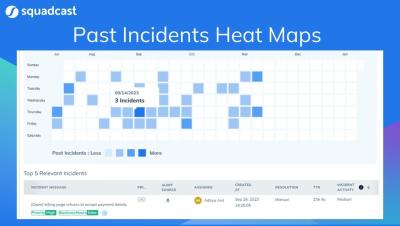Automating On-Call Scheduling With Squadcast: Simplify Managing Schedules
Navigating an extensive excel sheet to determine On-Call schedules and vacation plans can be daunting. The struggle of maintaining On-Call Schedules manually is real. But we've got a solution that can help. This blog addresses the challenges associated with manualOn Call Scheduling processes.











